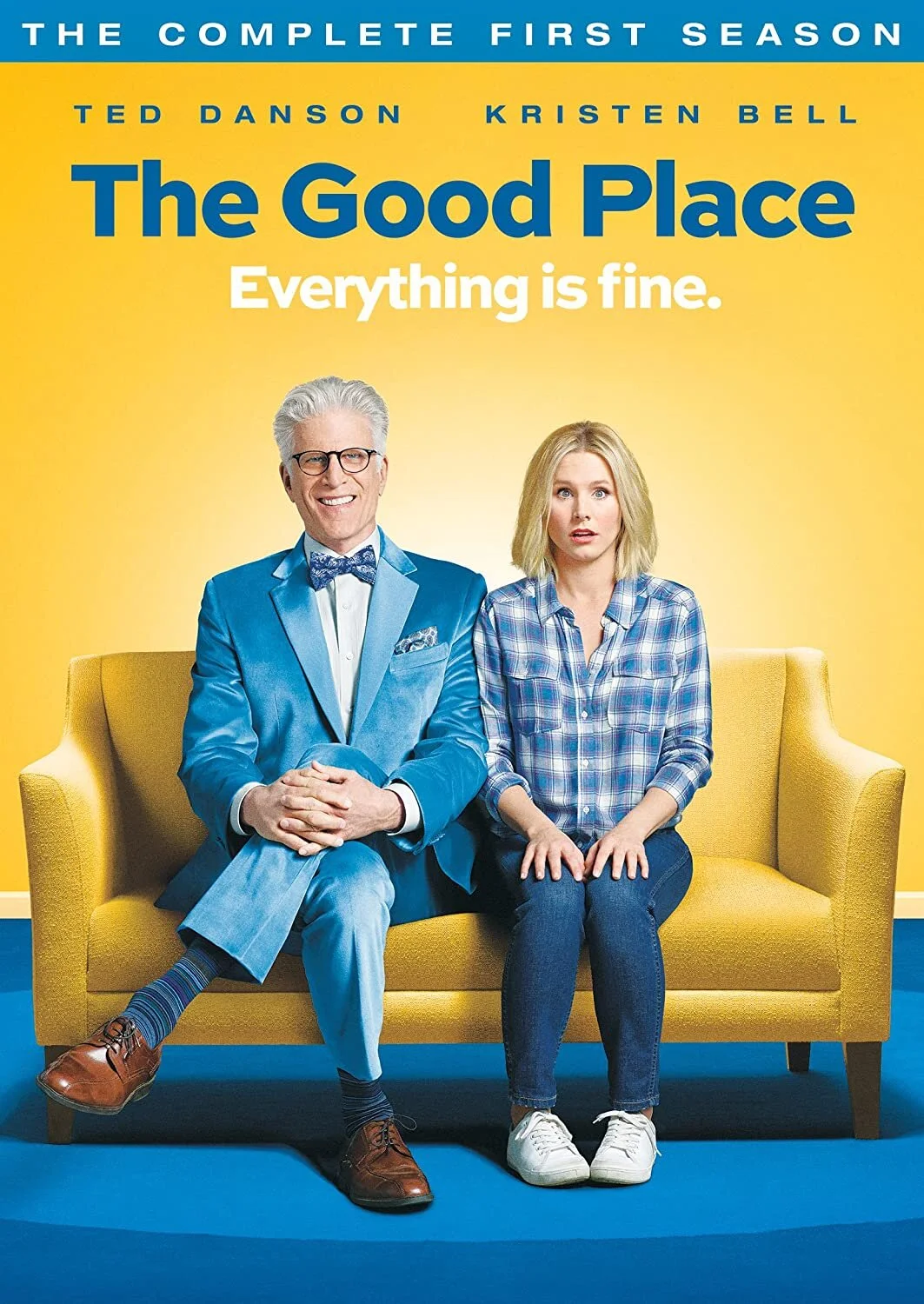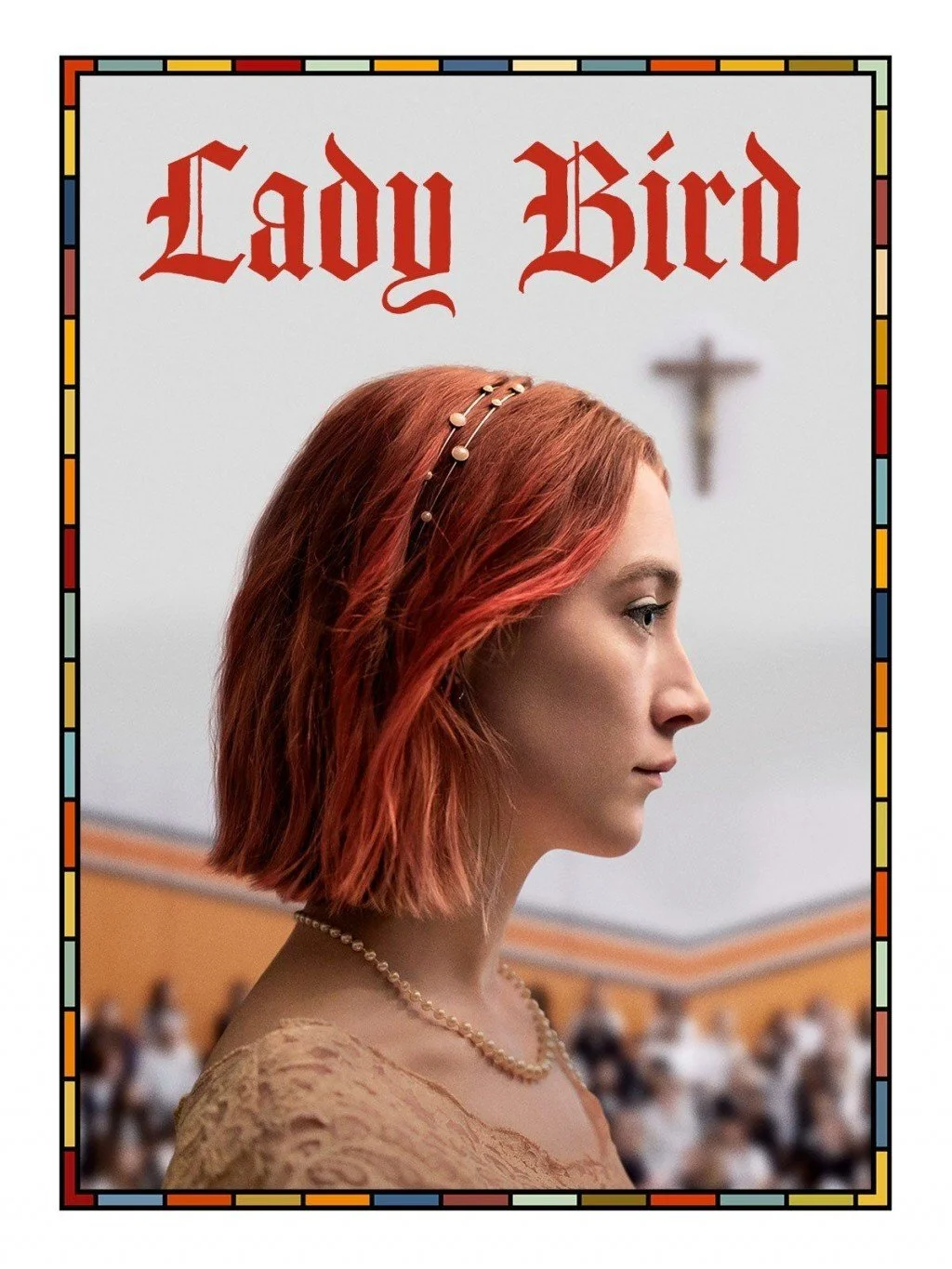If Lost Start Here is a guide for the anxious, curious, lonely and lost. Featuring everyday places and at-home prompts designed to help you live a life that feels good.

Watch | The Good Place
Maybe the only show to have a philosopher on staff, The Good Place is morality tale as a sitcom. With a cast that includes Ted Danson, Kristen Bell, and Jameela Jamil, this one covers all the big questions – what does it mean to be a good person, what are the true consequences of our actions, can we learn to be better versions of ourselves? That it does so citing Kant, Aristotle, and Kirkegaard without us really noticing is the sleight of hand trick that has us watching the episodes when we shouldn’t be – does that make us a bad person?
“What matters isn’t if people are good or bad. What matters is, if they’re trying to be better today than they were yesterday. You asked me where my hope comes from? That’s my answer.” – Michael, The Good Place

Watch | Lady Bird
Favorite scene of Lady Bird, Greta Gerwig’s coming-of-age movie while in Catholic school and Sacramento: Saoirse Ronan’s Lady Bird and best friend Julie (the amazing Beanie Feldstein) lying on the floor gossiping, legs up on the wall, eating unconsecrated communion wafers. Religion is woven all the way through but lightly so, giving texture rather than judgment: in the depressed musical loving priest, the teenage narratives playing out amongst prayers, hymns and assembly, and six-foot daylight rules and unusual prom themes. There’s no foregrounding of faith, rather just people immersed in their own stories, figuring out faith-adjacent things: empathy, compassion, forgiveness, love, intolerance, shame. For Gerwig, who considered the imperfect lives of saints as inspiration: ‘I was so interested in…taking something that just looks like… an annoying teenage girl and then giving her the experience of what I think of as grace.”
“It’s not important to be right. It’s only important to be true.” — Father Leviatch.

Read | human shift
Out of Stockholm, with twice-yearly print editions, Human Shift is ambitious in its scope and its reach. The magazine was founded by two women – Stina Daag, a Swedish graphic designer and creative director, and Polina Aronova-Cahn, an NYC-based stylist and fashion editor – with the aim to investigate ideas of culture, wellness, and spirituality in a “mind-altering” way that’s also “aesthetically inspiring”. That it brings together style and transformation in itself feels radical. Each issue is based on the characteristics of a different Chakra, but there’s no woo-woo here. Rather its exploration of ideas around movement, whether that’s within the body or mind or energy, translates as stunning photography, and life-enhancing features and conversations.
“Shifts come about from a greater awareness of the small idiosyncrasies of daily life. We keep thinking shifts are these massive life overhauls, but actually, they’re just about focused attention, awareness and rectifications in one’s daily actions.” — Polina Aronova-Cahn

Read | Emergence Magazine
There is only one-volume to date of this magazine, but it encompasses the first four online editions. It’s a long-read of a magazine that follows threads that link ecology, culture, and spirituality (the same interests of its publisher The Kalliopeia Foundation). We slowed down, a lot, to spend time with stories of navigating the waters in Micronesia, tracing the lives of Europe’s great winds, and learning about the religiosity inherent in the experience of forest therapy. Poems, photo series, short stories, multimedia works, interviews, and essays make their peripatetic way and offer pathways of connection that we’re started to forget, but urgently need. See also the accompanying practice booklet to accompany the magazine – that this exists tells you that they take inquiry and reflection, particularly of place and each other, seriously.
It has always been a radical act to share stories during dark times. They are a regenerative space of creation and renewal. As we experience the desecration of our lands and waters, the extinguishing of species, and a loss of sacred connection to the earth, we look to emerging stories. In them we find the timeless connections between ecology, culture, and spirituality.

Read | MONK
A new anthology of a magazine that sees itself as ‘an imaginarium’ for art and the soul, MONK is a very deep dive into why artists do what they do, and where it may all come from. There’s no handing over of belief systems here. In its compilation of interviews, poems, stories, and art MONK is more an open inquiry that explores what that elusive thing might be that informs our creative lives, what editor Sophie Levy Burton has called ‘a theology of creativity’. A thoughtful meditation of how the spiritual quite literally shows up in our lives, in physical forms, one of which includes this first edition.
“I set up MONK originally because after years of talking to artists there was always this clear pull in the conversation – the meeting points between the mysterious experience of making art and the experience of their spiritual self – that elusive sense of bringing something from beyond and the nature of inspiration.” – Sophie Levy Burton, editor

Listen | Unholier than Thou
Unholier Than Thou enters a territory that we’re both drawn to and shy away from: spirituality. Any search for meaning inevitably must take this on, but we’ve struggled to find voices that speak to ideas of belief and religion in ways that cohere to our values and reflect how we experience the world.
The guide we’ve found is journalist Phillip Picardi. He created Unholier Than Thou in response to his crisis of faith which spans a lifetime. From his teenage refusal to be confirmed into a church that was openly homophobic to being newly engaged and wanting ‘to figure this shit out.’
Like a good friend holding your hand and bringing you along, Picardi is curious and open to all as he explores how faith can ‘fit into our lives today when the secular doesn’t feel like enough and the spiritual doesn’t always feel like a home’. His high-low conversations —with guests like feminist astrologer Chani Nicholas, ER doctor (and his fiancé) Dr. Darien Sutton, and the pastor of the church where that bible photoshoot took place, Reverend Gini Gerbasi — connect belief to our right here and right now. That means we’re not discussing bible texts, but rather faith, as it is can be understood in light of Black Lives Matter, political divisiveness, and COVID-19. This is spirituality for our modern times.
“Finding answers from above for whatever the hell is going on down here.’ — Phillip Picardi
1
2
3
4
5
6
Previous
Next






